These non-toxic kitchen essentials are every baker's dream - and I bet you don't have them yet
Because cakes, bakes, and sweet treats should be harmless

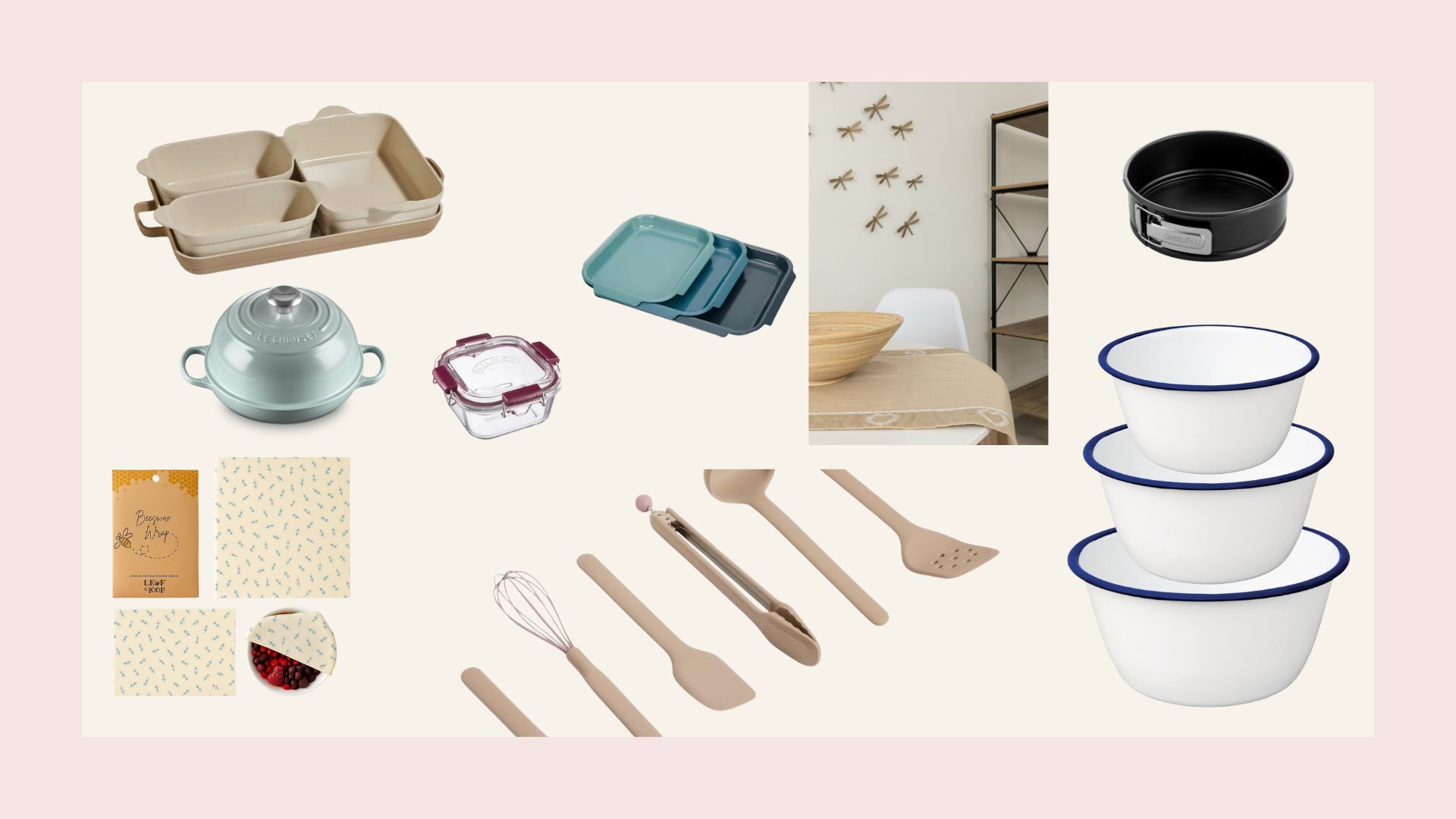
Sign up to our free daily email for the latest royal and entertainment news, interesting opinion, expert advice on styling and beauty trends, and no-nonsense guides to the health and wellness questions you want answered.
You are now subscribed
Your newsletter sign-up was successful
Want to add more newsletters?
The culmination of cold weather, spiced drinks in the shops, and the beginning of The Great British Bake Off has sent me straight back to my cosy kitchen. All I want to do is bake, but in light of all the news we've seen about non-sticks and chemicals in the kitchen, I've decided to refresh my kitchen with some non-toxic baking essentials.
After researching the best non-toxic air fryers, I started looking at all of my kitchen a little differently. The tray that I normally bake cookies on, my bread tin, and my stand mixer were all getting some sideeye from me as I was sat on my stool. Ever the do-er, I put my sceptisism into practice and researched the places where I should be more careful in the kitchen.
If you're like me, you're in luck. I've done all the research so that you don't have to. Whether you're hankering after the stand mixer that they use on Bake Off, a brand new bread tin, or a whisk that you don't need to worry about, you're in safe hands here. These are my non-toxic baking essentials, approved by toxicologists and baking experts.
The best non-toxic baking essentials, approved by bakers and toxicologists
If you want to keep your baking as healthy as it is delicious, the material of your bakeware really matters. The safest options are things like stainless steel, cast iron, and good old-fashioned glass, they’re sturdy, non-toxic, and won’t sneak any chemicals into your food. Ceramic and enamel-coated pieces can also be great, as long as you stick to trusted brands that make sure their glazes are free from nasties like lead or cadmium. What you’ll want to steer clear of are older non-stick pans made with Teflon or anything with PFAS coatings, since these can release toxins when they get too hot. Bare aluminium trays can also be a bit iffy, especially with acidic bakes like lemon drizzle. Think of it as choosing long-term kitchen companions – when you invest in good-quality, non-toxic bakeware, you can bake with peace of mind.
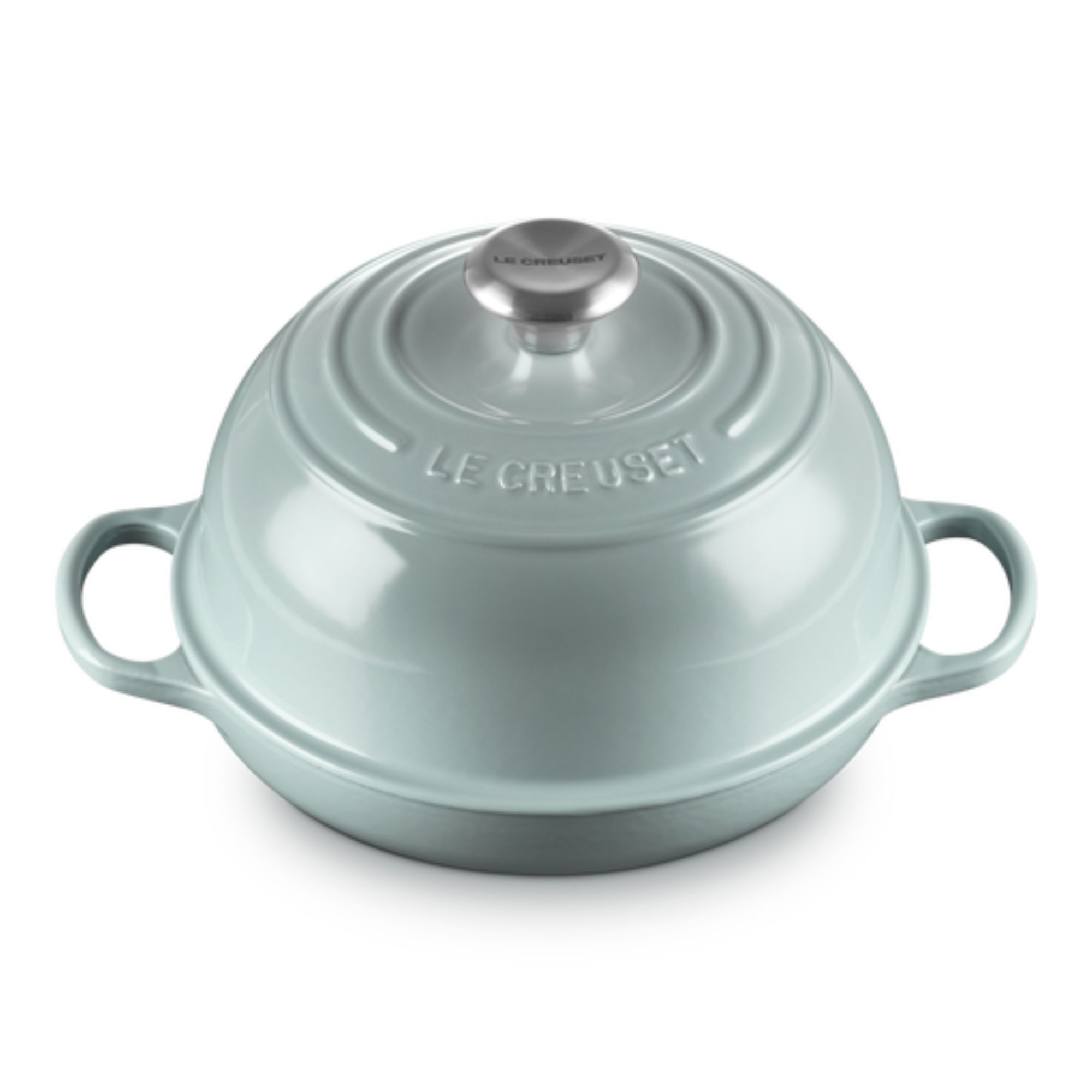
Serious bakers might have thought about bread makers and bread ovens. The best way to avoid nasty chemicals is by opting for a cast iron bread oven. And, when you think of cast iron, naturally Le Creuset comes up. Their bread oven is exceptionally good and, as I found, impressively versatile too. If you bake a lot, this is brilliant, or, if you're short on space, you could go for a bread tin. Simple.
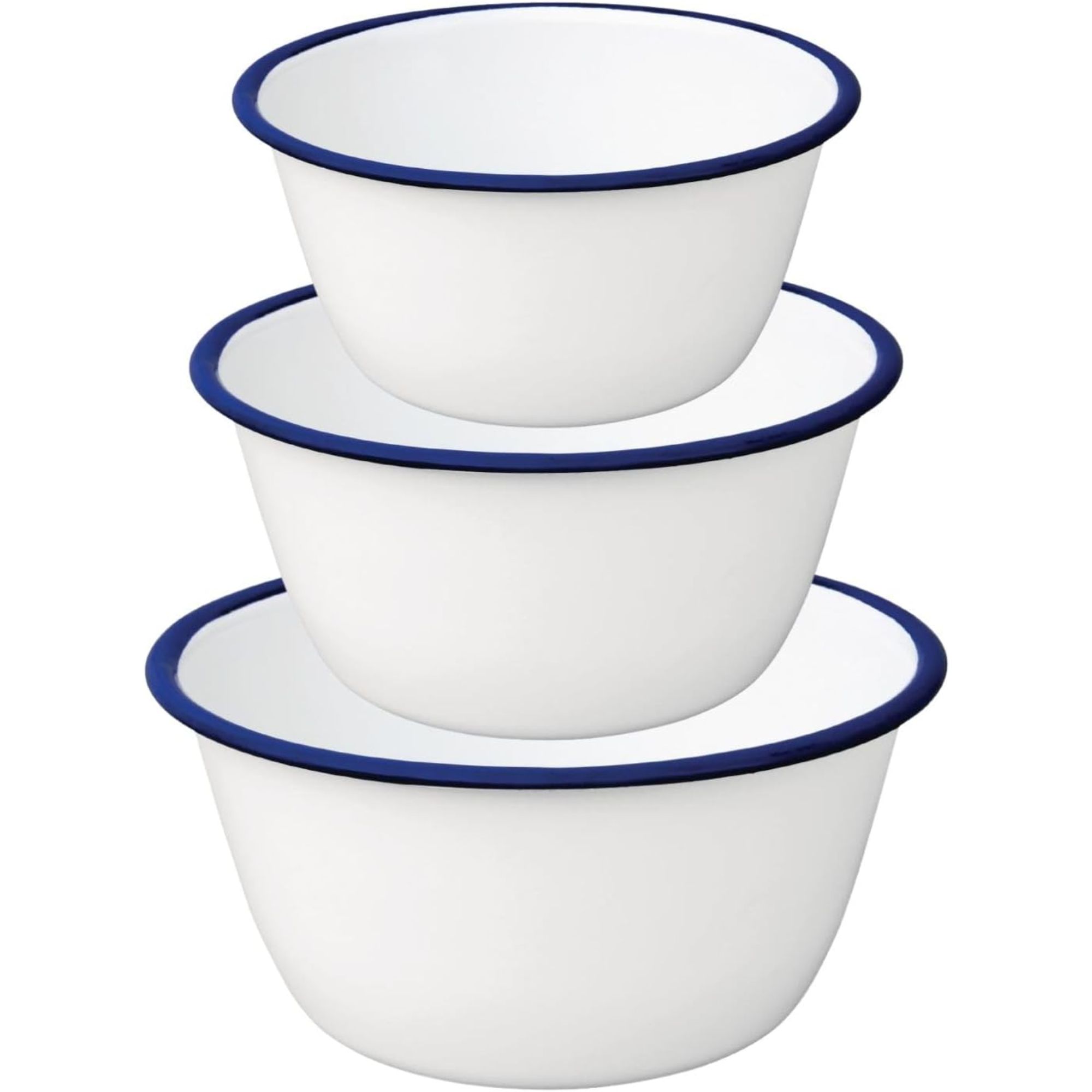
Falcon has a beautiful enamel prep set that I love (and own), but you can save a lot of money by opting for their pudding basin set. This classic style will cover all your bake mixes, batters and crumbles it total style. Again, it uses enamel (a blend of porcelain and steel) that's top quality and totally safe. It's a simple way to do stylish.
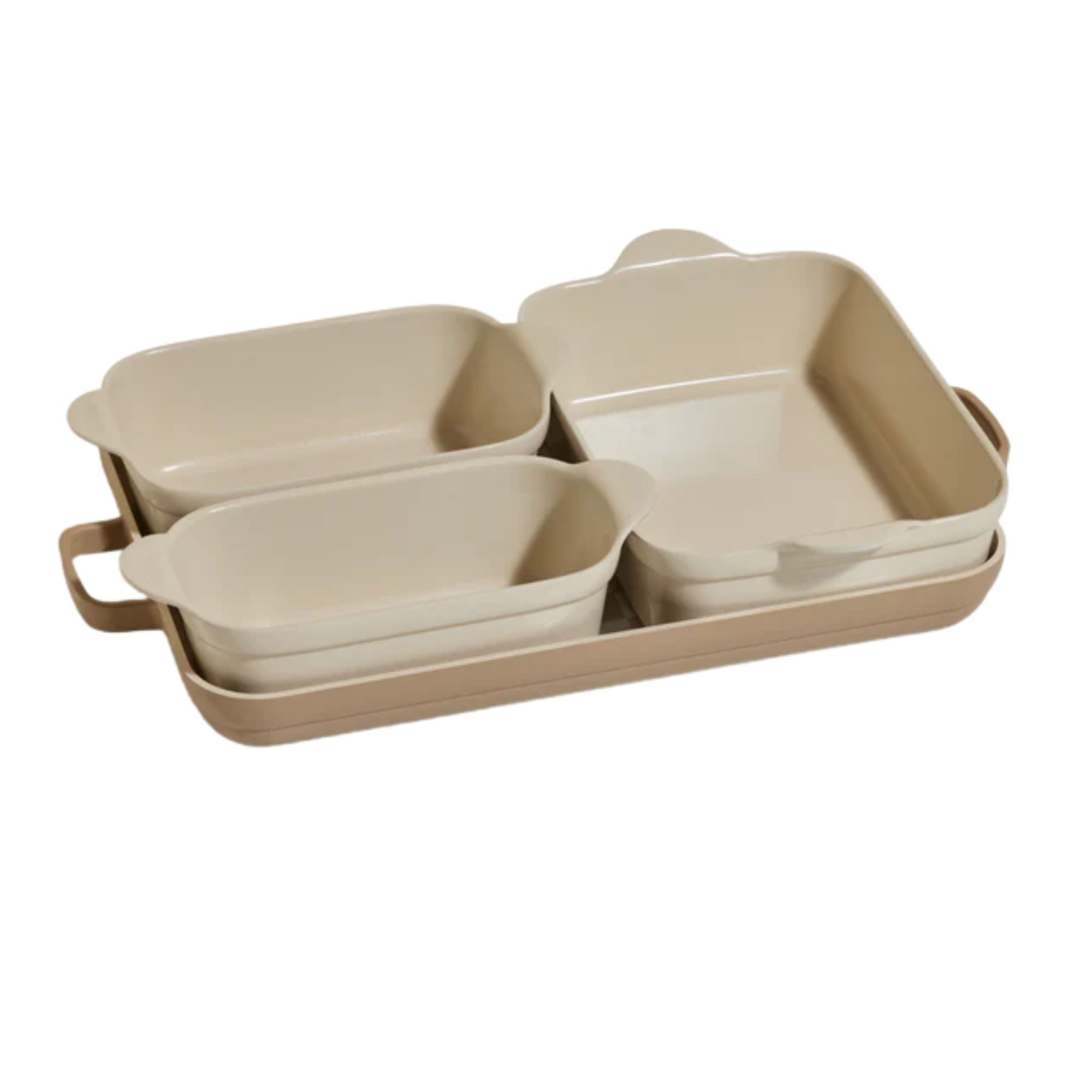
It took me a long time to find a bakeware set that's non-toxic, but one that also fits in my compact kitchen. Ever the experts, Our Place makes a Baker's Bundle that features a main baking tray, side baking dish, and loaf pan with a griddle pan and an oven mat. It's all non-toxic and available in a range of timeless colourways.
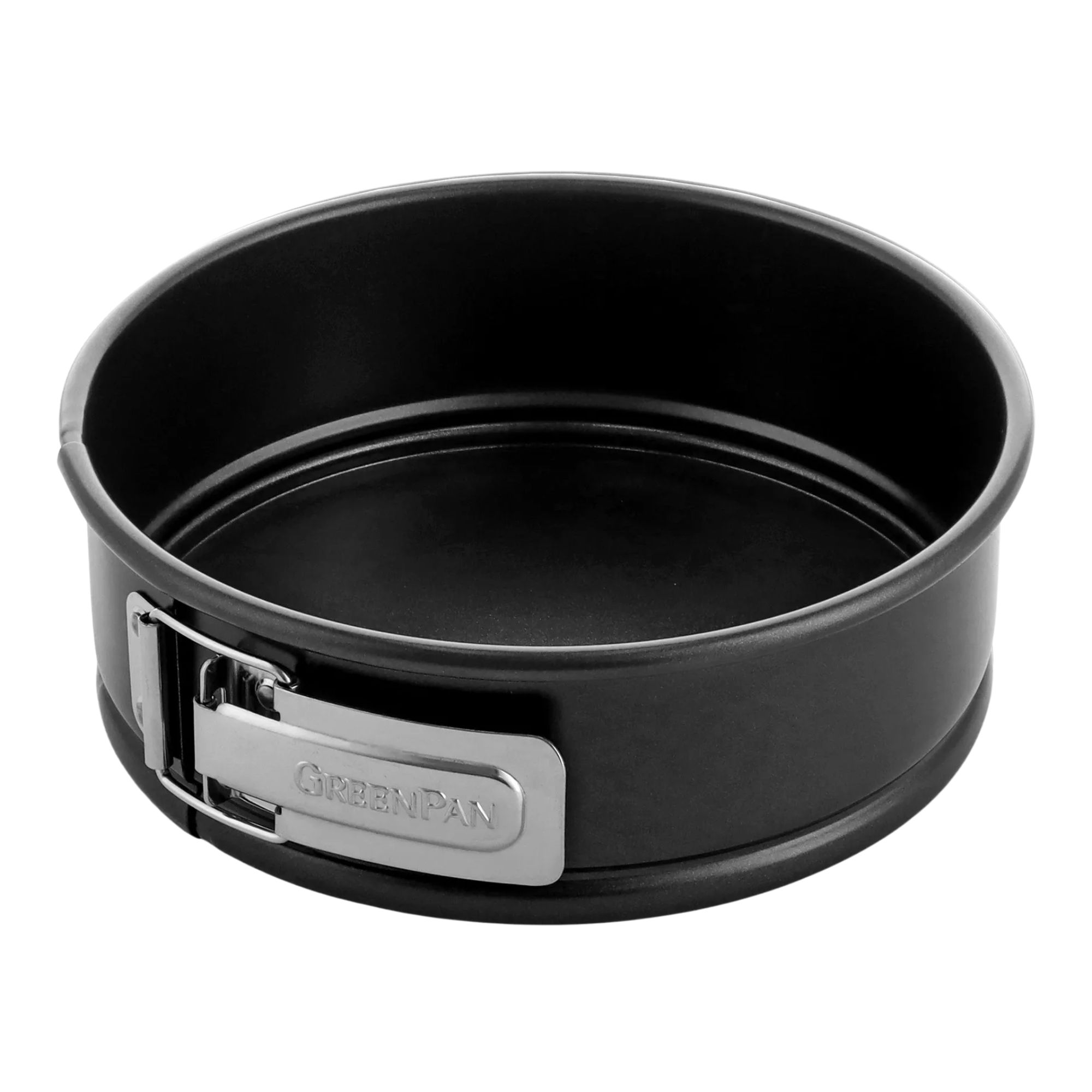
Cake cases are another place where it's easy to accidentally end up with a nasty non-stick in your kitchen. GreenPan uses a dual layer coating that's PFAS free. The beauty of these are that they're also springform and dishwasher safe. That's almost as delicious as the cakes that you'll be baking in them.
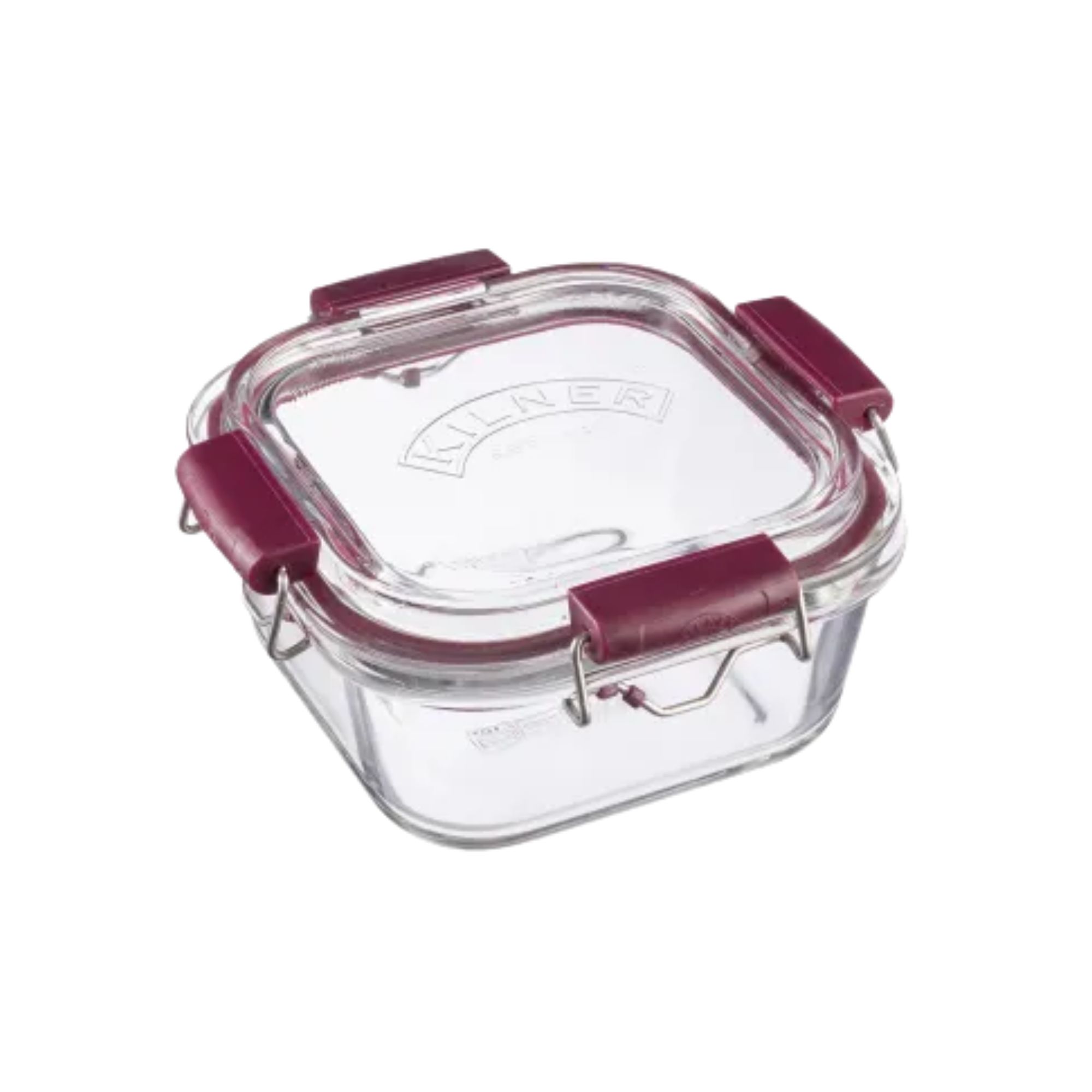
Crafted from durable, heat-resistant borosilicate glass, Kilner is a reassuring name to have in the kitchen. Their glass tupperware containers are relatively new to the market and they are a true treat. You can pack all your delicious goods inside them without worrying about microplastics or other nasties.
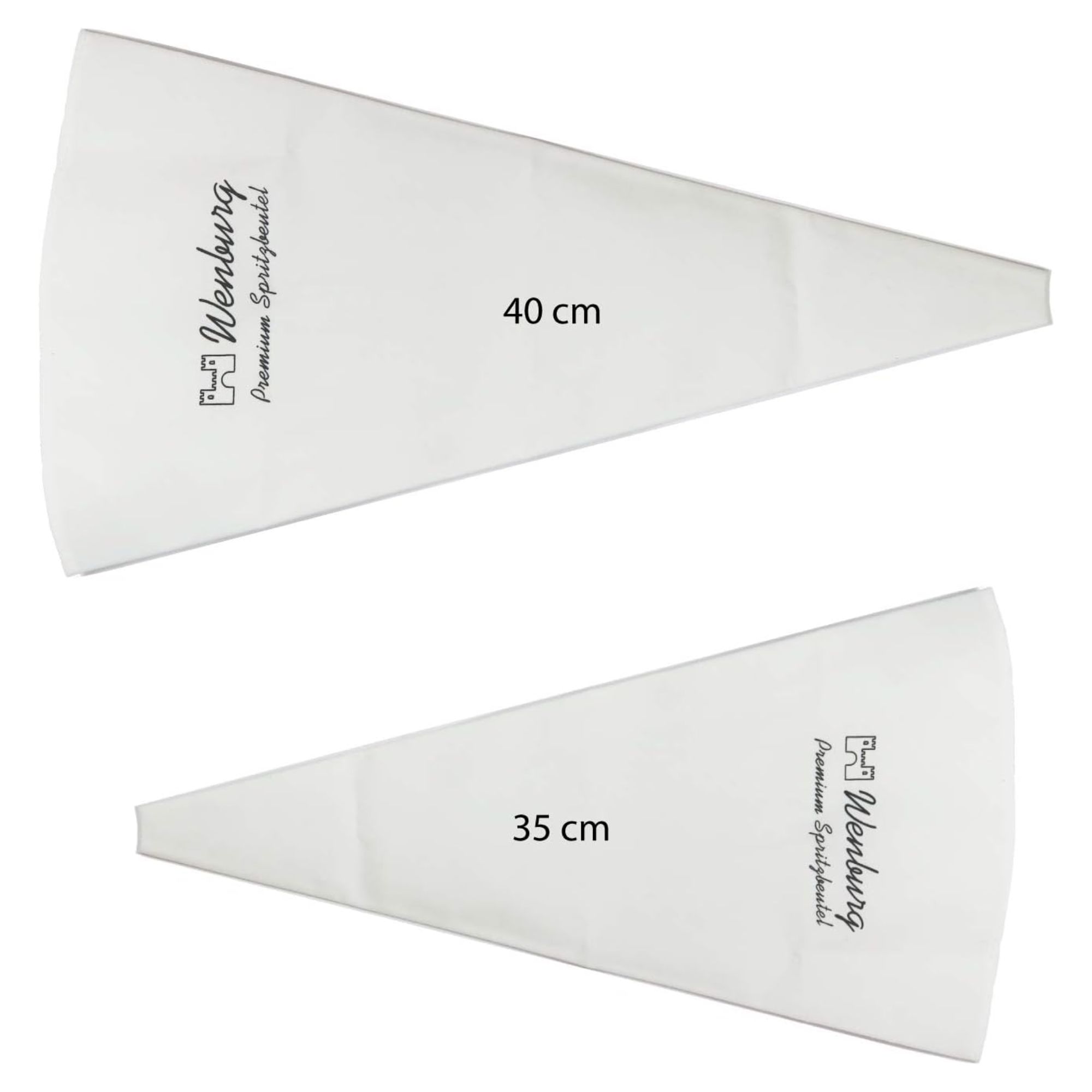
Baking paper gets used a lot in my home. The best way to approach it is to look for unbleached, organic, or natural baking paper. The next level up is to go for a beeswax food wrap. This is completely plastic free, made from a blend of organic cotton, beeswax, jojoba oil and resin. It's plastic free, organic, and makes a great alternative to cling film too.
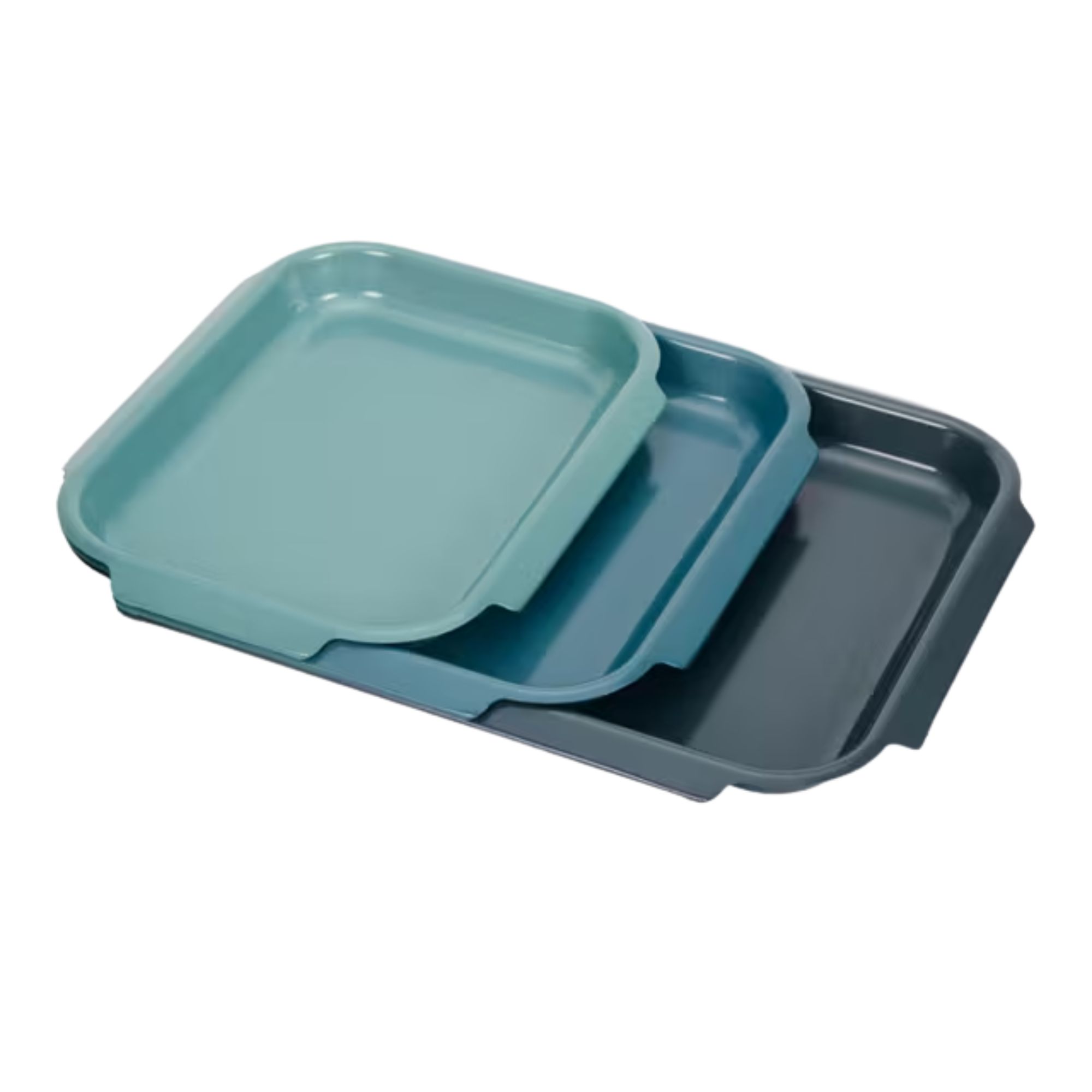
You already knew JosephJoseph was making an appearance didn't you? Lots of baking trays and cookie sheets are covered with a non-stick that you need to be careful with. These are made from heavy-gauge carbon steel and a non-toxic coating. In true J&J style, they stack away and can be grabbed effortlessly with oven gloves. You get a 10-year guarantee too.
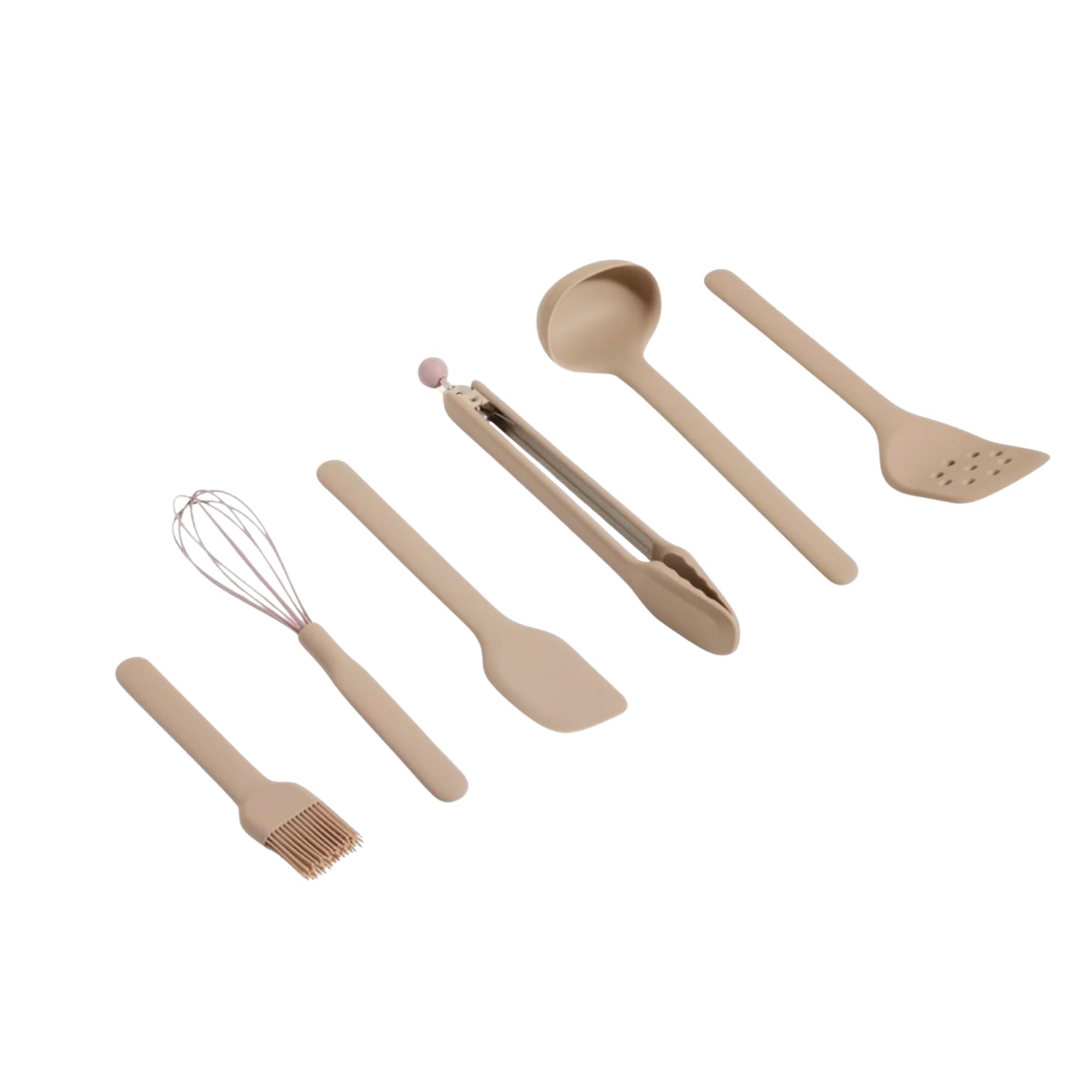
At this point, you might be worries about all your different accessories in your drawer or jar. The set includes a spatula, ladle, whisk, slotted turner, basting brush, and tongs. They're all nylon and stainless steel, so they feel ergonomic and keep cool under the heat. You'll be stirring, flipping, whisking, basting, spreading, and scraping in safety.

It wasn't until I started researching that I discovered a way to make my piping bags no-toxic. These re-usable cotton bags are washable, string, reusable, tasteless, non-toxic. For £9.99, you're saving a good sum of money as well as looking after the environment and your body. It's a win win. Get on those creams, cookies, and cupcakes.
FAQs
Is aluminium or silicone safer for baking?
Both food grade aluminium and silicone are food safe, so you will be fine to have either in your cookware. Of course, it's important to protect them properly, but you're okay with both.
What is the safest non-toxic bakeware?
Glass, porcelain, and ceramic are all great materials to use if you're worried about the safety of your bakeware.
Is Pyrex bakeware non-toxic?
Yes, all your classic Pyrex bits and pieces are certified as non-toxic.
Final thoughts
I've kitted out my kitchen with all these non-toxic baking essentials. They're safe to use and all just as good as alternatives, so you can cook in the safety of knowing your bakes are as delicious as they are safe to eat.
Sign up to our free daily email for the latest royal and entertainment news, interesting opinion, expert advice on styling and beauty trends, and no-nonsense guides to the health and wellness questions you want answered.

Laura is woman&home's eCommerce editor, in charge of testing, reviewing and recommending products for your home. You'll see her testing anything from damp-banishing dehumidifiers and KitchenAid's most covetable stand mixers through to the latest in Le Creuset's cast iron collection.
Previously, she was eCommerce Editor at Homes & Gardens, and has also written for Living Etc, The White Company and local publications when she was a student at Oxford University. She is also a Master Perfumer (a qualified candle snob), SCA-Certified Barista (qualified coffee snob) and part of a family who runs a pizza business (long-time pizza snob) - all of which come in handy when you're looking for the best pieces of kit to have kitchen.